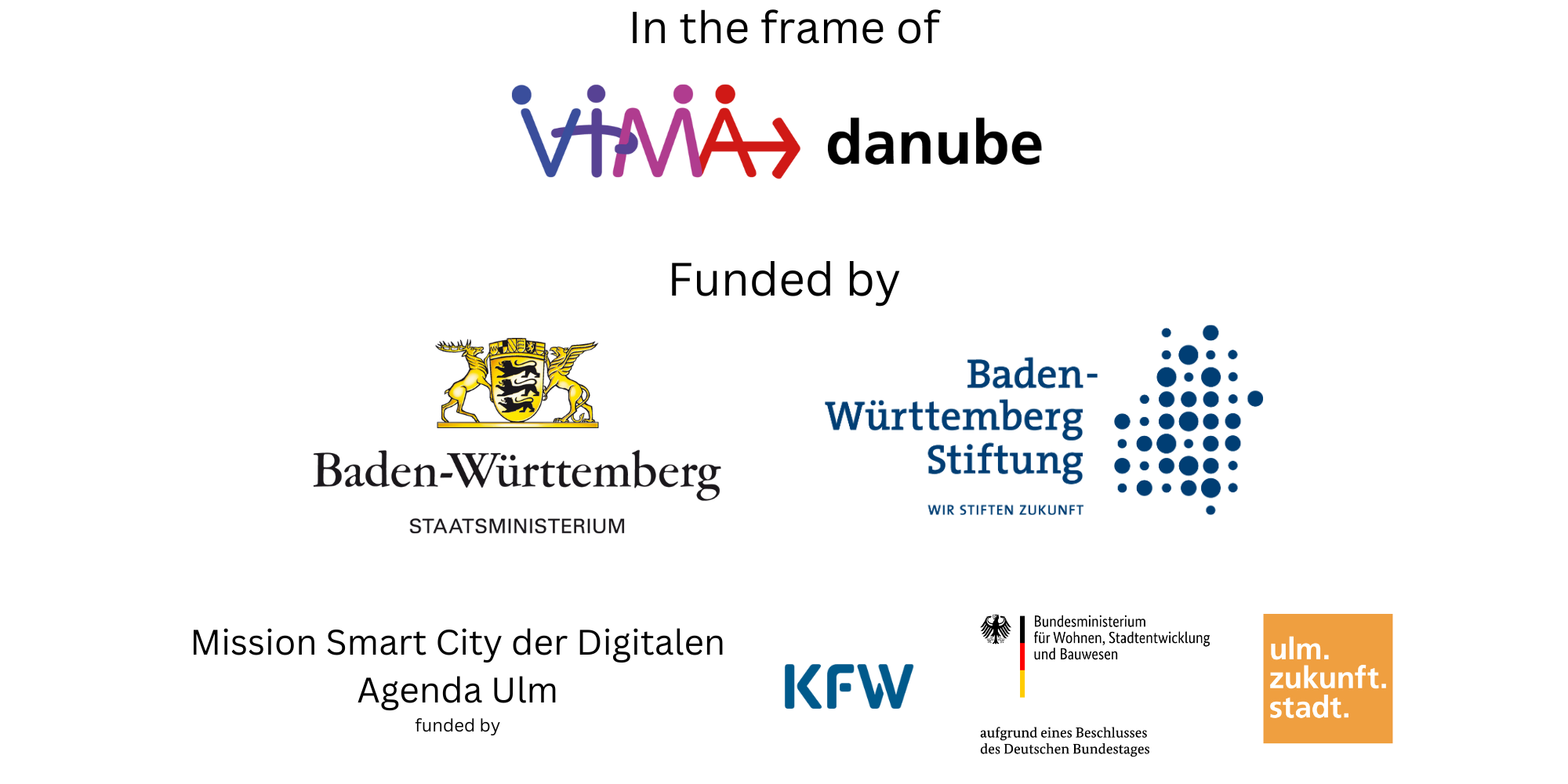Strengthening civil society in the Danube region for a joint Europe
As part of the 13th Danube Festival Ulm/Neu-Ulm 2024, a partner meeting of the international education network Danube-Networkers and other Danube stakeholders took place from 11-13 July 2024
Active members of the Danube Networkers educational network and guests from other EUSDR networks were invited. The thematic focus was on the importance, tasks and forms of cooperation between civil society organizations and between citizens in the Danube region and in Europe.
At the conference on 12 July, the participants used keynote speeches and working groups to address the question of how stable cross-Danube networks based on European values can be established and further developed in various areas of society through a combination of digital cooperation and analogue meetings, strengthening the feeling of togetherness in and shared responsibility for Europe.
Participation and networking were strengthened through thematic workshops in the areas of culture, social affairs, environment, new technologies and poster presentations with “Markt der Möglichkeiten” (engl. market of opportunities) during the lunch break. Special consideration was given to the introduction of digital possibilities of cooperation and digital methods of public relations, analysis of organisational and communication structures.
A poster session and information stands illustrated the power of various existing civil society-oriented networks in the Danube region and invite organizations and citizens to participate.
Using the example of the multifunctional online platform ViMA danube, new ways of civic engagement through self-organized „online networking beyond borders“ were presented and tested and materials were made available.
As part of the partner meeting, there was a training session for VIMA volunteers, a working meeting of ViMA stakeholders and the partners in the intergenerational project „Taking little Steps towards Change“.
The partner meeting included the participation in the Danube Conference of the Baden-Württemberg Foundation on July 11, 16:00-19:00.
Organizer was ILEU e.V. as coordinator of the network „Danube-Networkers“, in cooperation with partners from different Danube countries and the international NGO Danube-Networkers for Europe (DANET) and the EUSDR-Network Baden-Württemberg. The partner meeting was sponsored by the State Ministry of Baden-Württemberg and the Baden-Württemberg Foundation.
Around 80-100 guests from all countries in the Danube region attended at the conference – representatives of NGOs, Danube networks, educators and multipliers of all age groups
The conference with its pre- and post-conference activities used ViMA-danube, come-together-online sessions and public relations work to make arguments and examples for a common Europe based on solidarity understandable and tangible for a broad public.
An exhibition in the Edwin Scharff Haus presented the results of the „Traces of Europe in my Town“ competition. People of different age groups and ethnicities from all Danube countries presented traces of Europe in their town/place of residence in the form of texts, photos and videos. The aim was to arouse participants‘ interest in geographical, historical, political, cultural and social dimensions and comparisons and to help citizens better understand the Danube Strategy and the European Union as a whole.
Aim of the partnership meeting:
The aim was to promote cooperation between people in the Danube countries and to expand intercultural dialog, in line with the objectives of the state of Baden-Württemberg to promote the Danube region. Within the framework of the EUSDR, the project contributes to the promotion of cooperation between civil society organizations and contacts between people as well as their networking and cooperation in thematic networks (SPB3). Prejudices and stereotypes are reduced, links between people are strengthened and European identity is promoted. In addition, institutional capacities and the cooperation of civil society organizations are expanded and strengthened through the broad network of the Danube Networkers educational network and partners and the application of innovative methods (SPB 10). The project invests in people and qualifications (SPB9) by qualifying the partners 1) technically – in the use of new media (videoconferencing, online survey tools, etc.) in dealing with technology and 2) in terms of content – on the topics of cultural diversity, environment/energy supply/nutrition, digitalization, social participation, the future of Europe in times of corona, war in Ukraine and other challenges. It aims to strengthen new methods in the goal- and content-oriented use of new media. Shared science-based knowledge, knowledge of social realities and a proactive understanding of democracy are increasingly important for people of all ages and social groups. Intergenerational dialog is also intended to encourage older people to use digital media.
Key questions at the symposium
How civil society capacities can promote inclusion, democracy and active participation by supporting
– good governance and transparency
– Human rights and equal treatment by combating any discrimination based on race, ethnic origin, religion or belief, gender, disability, age, sexual orientation or gender identity
– Inclusion of vulnerable groups
– Gender equality and combating gender-based violence
– Environment and climate change
What is needed for a common Europe?
Participation, capacity building and networking through
- Capacity building of the civil society sector, including sustainability, networking and accountability of NGOs
- Advocacy, awareness-raising and outreach to citizens in all societal areas
- Citizen activism, volunteering and civic participation
- Inter-generational cooperation
- Intercultural dialogue, including platforms for minority/majority interactions
- Partnerships between NGOs, public and private sector entities
- Participation in policy and decision-making processes
- Research and analysis to inform policy-making
- Support for freedom of expression, investigative journalism and media
- Promoting LGBTI rights and anti-discrimination activities
- Civic education and training
- Social innovation and social enterprise development
- Awareness-raising and capacity building on environmental issues including climate change and adaptation

